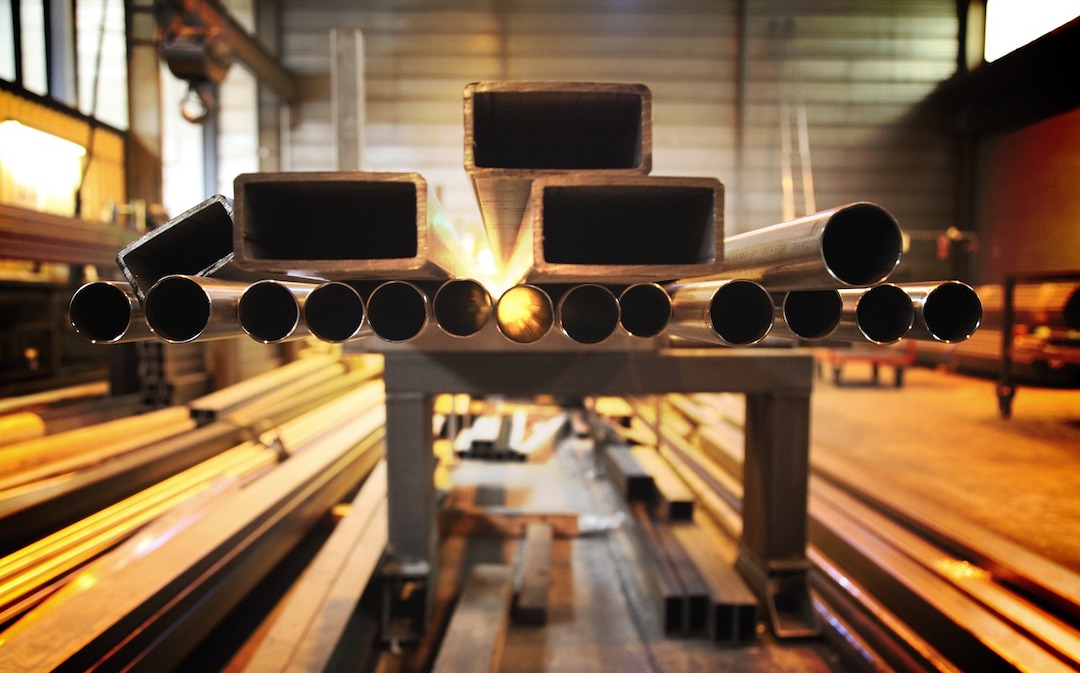The American Institute of Steel Construction (AISC) recently issued a draft of AISC 341, a standard that provides guidance on designing earthquake-resistant steel buildings and it is available for public comments.
The draft standard incorporates new design limits for steel columns based on research conducted by the National Institute of Standards and Technology (NIST) and the University of California San Diego. Using a shake table, researchers identified deficiencies in the performance of a certain type of column, with many test assemblies buckling prematurely.
Based on the findings, the researchers devised new limits for the cross-sectional slenderness of steel columns. “A lot of current design provisions are based on scaled-down column tests or a very small number of full-scale tests,” said NIST structural engineer John Harris in a news release. “But the full-scale testing we conducted has allowed us to begin filling in the knowledge gap regarding the performance of these kinds of columns under extreme loading conditions.”
The draft includes new slenderness limits on columns, with structural steel webs—sized according to the new limit—that could meet drift and stability requirements at the same time. The more stringent limits on steel column webs could soften the blow of earthquakes, potentially saving newly designed buildings from unnecessary damage or partial collapse.
Related Stories
| Apr 10, 2013
ASHRAE publishes second edition to HVAC manual for healthcare facilities
The American Society of Heating, Refrigerating and Air-Conditioning Engineers (ASHRAE) has published a second edition of its “HVAC Design Manual for Hospitals and Clinics.”
| Apr 10, 2013
Concrete Reinforcing Steel Institute accredited by ANSI as standards developer
The Concrete Reinforcing Steel Institute (CRSI) was recently accredited by the American National Standards Institute (ANSI) as an ANSI Accredited Standards Developer (ASD).
| Apr 10, 2013
DOD should continue LEED-Silver or equivalent rating standard, says NRC
The Department of Defense should continue to require that its new buildings or major renovations to facilities be designed to achieve a LEED-Silver or equivalent rating, says a new report from the National Research Council.
| Apr 10, 2013
EPA proposes emissions rules affecting light construction vehicles
The Environmental Protection Agency has proposed air-pollution standards that it says will reduce the amount of sulfur in U.S. gasoline by two-thirds and impose fleet-wide pollution limits on new vehicles.
| Apr 10, 2013
New skyscraper designs raising the bar on green standards
Though most new skyscraper designs have a traditional look, they are including a wider array of sustainable elements to use energy and water more efficiently and improve human health.
| Apr 5, 2013
Lack of national standards on design of bioterror labs creates higher risk for accidents, panel says
U.S. labs that conduct research on bioterror germs such as anthrax are at risk for accidents because they do not have uniform design and operation standards, according to a Congressional investigative group.
| Apr 5, 2013
Builders Hardware Manuf. Assn. revises three standards for hinges, locks, and latches
The Builders Hardware Manufacturers Association (BHMA) released three new revisions to the ANSI/BHMA standardsfor hinges, interconnected locks, and sliding and folding hardware.
| Apr 5, 2013
New items to ASHRAE/IES energy standard open for public comment
The 2013 version of the ANSI/ASHRAE/IES Standard 90.1-2010, Energy Standard for Buildings Except Low-Rise Residential Buildings, is scheduled for publication later this year, and 26 proposed addenda are open for public comment.
| Apr 5, 2013
No evidence that mandatory building energy labeling improves efficiency, study says
The Building Owners and Managers Association (BOMA) International and the Greater Boston Real Estate Board (GBREB) released a report, “An Economic Perspective on Building Labeling Policies,” that questions the efficacy of mandatory building energy labeling.
| Mar 27, 2013
Practical application of Legionella prevention standards the focus of ASHRAE project
An American Society of Heating, Refrigerating and Air-Conditioning Engineers committee drafting tough new standards to prevent the waterborne bacteria Legionella is focused on how to apply the standards in the real world.












